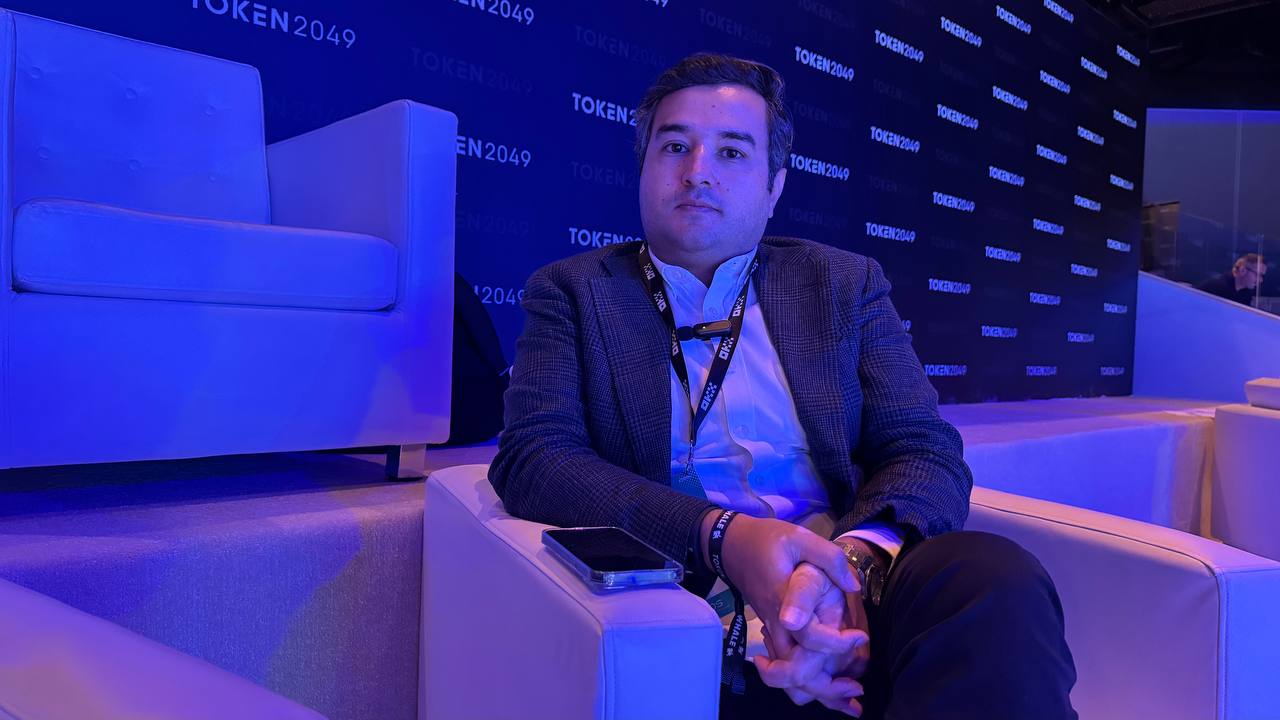OKX Exec Cautions Against Hype in Real-World Asset (RWA) Tokenization
Rifad Mahasneh, CEO of OKX’s Middle East and North Africa (MENA) division, has called for a focus on real-world utility amidst the growing interest in real-world asset (RWA) tokenization. Speaking at the Token2049 event in Dubai, Mahasneh stressed the need for projects to demonstrate tangible benefits when tokenizing assets.
He stated that while tokenization holds promise, it’s crucial to avoid tokenizing assets that don’t inherently benefit from it. Instead, the emphasis should be on tokenizing assets that provide real, everyday value. This approach, according to Mahasneh, is what will make a project truly promising.
While hype can fuel initial growth in the Web3 space, prioritizing practical, everyday value is paramount for long-term success.

RWA Tokenization Gains Momentum in the UAE
Mahasneh’s comments arrive as the United Arab Emirates (UAE) witnesses a surge in RWA tokenization projects. The region is becoming a hub for these initiatives, attracting significant investment and regulatory attention.
Key Developments in UAE’s RWA Tokenization:
- MultiBank Group’s $3 Billion RWA Agreement: Partnered with UAE-based real-estate firm MAG and blockchain infrastructure provider Mavryk for a substantial RWA initiative.
- Dubai Land Department’s Pilot Project: Exploring real estate tokenization in collaboration with Dubai’s Virtual Assets Regulatory Authority (VARA).
- Mantra’s $1 Billion Deal with Damac Group: Although initially promising, this partnership later experienced a significant token collapse, highlighting the risks involved.
Mahasneh believes the UAE’s clear regulatory environment encourages larger institutions to participate in tokenization and crypto. This clarity provides a framework for understanding how key players, such as exchanges, are governed.
UAE’s Stablecoin Framework Boosts Institutional Confidence
The UAE has made significant strides in stablecoin regulation. In June 2024, the Central Bank of the UAE (CBUAE) approved a regulatory framework for stablecoin licensing, clarifying the rules for issuing, supervising, and licensing dirham-backed payment tokens.
Mahasneh highlights the UAE’s proactive approach to regulating crypto-related technologies. He adds that the central bank’s involvement instills greater confidence in institutions considering entering the crypto business.
“Other markets are still debating whether they should have crypto regulations. Here, we moved into developing stablecoin regulations. For an investor, you want to know that your stablecoin is regulated. That’s a big plus,” Mahasneh stated.
Following the regulatory advancements, major players like Tether have introduced dirham-pegged stablecoins. Furthermore, Abu Dhabi’s sovereign wealth fund (ADQ), First Abu Dhabi Bank, and the International Holding Company have partnered to launch a new bank-backed stablecoin, pending regulatory approval.
What is Real-World Asset (RWA) Tokenization?
Real-World Asset (RWA) tokenization refers to the process of representing ownership of physical assets, such as real estate, commodities, or art, as digital tokens on a blockchain. This allows for fractional ownership, increased liquidity, and potentially easier access to investment opportunities.
Benefits of RWA Tokenization:
- Increased Liquidity: Tokens can be traded more easily than traditional assets, potentially unlocking liquidity in previously illiquid markets.
- Fractional Ownership: Allows investors to purchase smaller portions of high-value assets, making them more accessible.
- Improved Transparency: Blockchain technology provides a transparent and immutable record of ownership.
- Reduced Costs: Tokenization can streamline administrative processes and reduce transaction costs.
Challenges of RWA Tokenization
While RWA tokenization offers numerous benefits, it also faces several challenges:
- Regulatory Uncertainty: The legal and regulatory landscape surrounding RWA tokenization is still evolving in many jurisdictions.
- Valuation and Custody: Determining the fair market value of underlying assets and ensuring secure custody of both the assets and the tokens can be complex.
- Interoperability: Ensuring compatibility between different blockchain platforms and traditional financial systems is crucial for wider adoption.
- Security Risks: Smart contract vulnerabilities and potential security breaches pose risks to token holders.
The Future of RWA Tokenization
Despite the challenges, the future of RWA tokenization looks promising. As regulatory frameworks become clearer and technology matures, we can expect to see wider adoption of this innovative approach to asset ownership. The potential to unlock trillions of dollars in illiquid assets and create new investment opportunities is significant.
The UAE’s proactive approach to regulation and its focus on innovation position it as a key player in the global RWA tokenization landscape. However, as OKX’s Rifad Mahasneh emphasizes, the key to long-term success lies in prioritizing real-world utility and ensuring that tokenization provides tangible benefits to users.